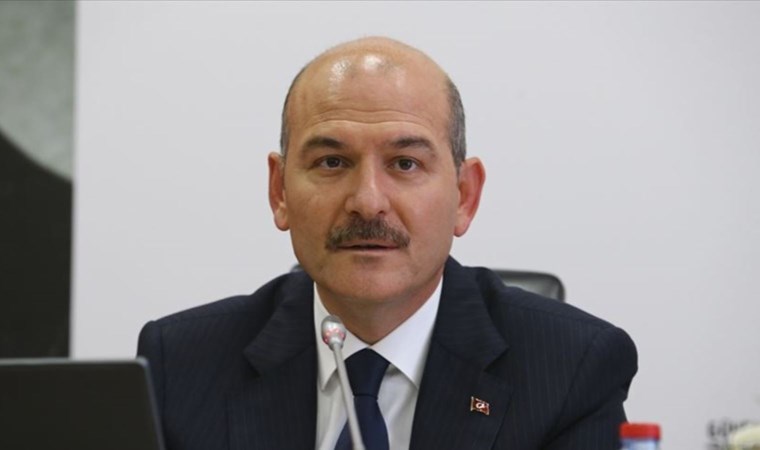Turkey may experience serial bankruptcies
Japanese credit rating agency JCR Eurasia Rating’s CEO Orhan Ökmen, stating that stress was rising in both economic and political terms in Turkey, said they had reduced the time between company analyses they made from three monthly to weekly. Ökmen commented that the risk of serial bankruptcy was increasing, chiefly in the construction sector.
Şehriban Kıraç
Japanese credit rating agency JCR Eurasia Rating’s CEO Orhan Ökmen, stating that, both economically and politically, stress was rising in Turkey, said they had reduced the time between company analyses they made in Turkey from three monthly to weekly.
Ökmen, stressing that the constant extending of the state of emergency had created the impression in markets that the state of emergency had now become permanent, pointed out that for sustainable growth that focuses on greater employment, production and investment, the improvement of the investment environment in terms of the law and democracy was the most basic priority. I spoke to JCR Eurasia Rating’s CEO Orhan Ökmen about the risks of the Turkish economy, the state of emergency, inflation, interest rates and criticism of credit rating agencies.
Stress has increased
- Turkey is passing through a hectic period a both politically and economically. How are credit rating agencies functioning in this period?
At times when things are going well, rating agencies also have an easy time. But, whenever things get stressful in the economy and politics, the workload increases. Ratings fall. Exchanges of opinion and discussions with companies get more intense. Like it or not, revision periods shorten. Turkey is currently in such a period. The rule in the business is that we create ratings from annual perspectives. We revise countries and companies once every three months. But, in such stressful times, the three-month periods end up being too long. Companies’ situations change weekly. There are even situations that we monitor daily.
Risk of stagnation
- What currently are the Turkish economy’s weak sides?
The risk of stagnation in Turkey is rising. There is currently a strong desire to hold cash in both sectors and companies. Willingness to repay debt is decreasing. This may pave the way for a serious liquidity crisis in Turkey. In fact, we hear that the Turkish banking sector is declaring certain sectors to be risky and is reducing loan allocations to them. The situation in the economy as a whole with companies increasingly disposed towards holding cash, payment times increasing and little willingness to make payments has increased the risk of serial bankruptcy. The overall cash shortage that has been ameliorated to an extent through the Loan Guarantee Fund and banks’ tolerance has spread by means of the supply chain both horizontally and vertically between sectors and companies and into the economy as a whole and assumed critical proportions, leading to an increased probability of serial bankruptcy. Additionally, in the present business climate, the unwillingness of banks to lend to sectors they have declared to be risky will further enhance this cash shortage.
The current account deficit whose absolute amount will reach 40 billion dollars has impaired the quality of financing. The potential for increasingly strained relations with the Western world to shrink the economy as a whole is one of Turkey’s most significant economic risks. Shortcomings and impairments of a legal nature also create great risk for Turkey with regard to foreign capital inflows.
- In which sectors is there a bankruptcy risk?
Construction. Construction companies have started to experience liquidity constraints.
State of emergency creates nervousness
- Turkey has been governed under a state of emergency for some time. Can you assess the impact of this state of affairs on investors?
The constant extending of the state of emergency has created the impression in markets that the state of emergency has now become permanent. This is making markets nervous, because the constant extending of the state of emergency, initially proclaimed for the purpose of defending the law and freedoms, gives rise to the perception that the suspension of parliament’s right to govern and democracy is also being extended for an unbroken time period and this makes investors nervous. The state of emergency causes foreign investors to exit the country or delay entering the country. The legal practices experienced over the state of emergency period have scared foreign capital and increased uncertainty. The basic need of Turkey and all societies in the world is always for more democracy. The continuation of the state of emergency, which is the basic cause of stress in the markets, will also increase mass poverty. The atmosphere of political uncertainty and instability that the state of emergency gives rise to finds reflection in the exchange rate and thereby an overall increase in costs, leading to higher prices. The justification for extending the state of emergency has ceased to exist.
No employment
- Construction and consumption in Turkey are increasing tangentially. Can this growth that creates no employment continue?
This is growth bringing no solution to unemployment. This means that that errors are being made in growth in certain places. Turkey’s growth potential could well exceed 5.5 per cent. But, this does not solve Turkey’s problems. The capacity for long-term sustainability of economic growth is very weak under current conditions. The decline in investments that would boost Turkey’s manufacturing strength as a corollary of the lack in investor confidence that has been observed for a long time, and the impairments in institutional quality and the legal system are weakening the sustainability of economic growth. The basis of Turkey’s economy being in construction increases volatility. The loss in value of the Turkish lira, negative developments affecting funding costs and increased energy prices have had a pretty dampening effect on the construction sector’s 2017 domestic performance and liquidity possibilities. Financing for large infrastructure projects is becoming pretty difficult. The construction sector’s promotion from banks’ point of view into the risky category in 2017 has also caused liquidity constraints in the sector. For growth that focuses on greater employment, production and investment, the improvement of the investment environment in terms of the law and democracy is the most basic prior requirement.
Missing out on structural reforms
- The Central Bank says that it will continue the constant tight monetary policy to reduce inflation. But inflation is not coming down. Where is the mistake being made?
Initially, the degree of tightness of the tight monetary policy implemented is insufficient to eliminate the existing risks relating to interest rates, exchange rates and price stability. With interest rates remaining stagnant despite increased Turkish lira losses, this diminishes the effectiveness of tight monetary policy. The effect of expansionary fiscal policy and the loss of an environment conducive to structural reform prevent tight monetary policy from succeeding in Turkey. The policies implemented by the Central Bank are not reducing inflation and must be tightened further.
If Turkey can reduce the internal political risks, monetary policy may become capable of weakening exchange rate effects to a degree. Dependence on petrol prices is also a structural problem and will in the end be solved through structural reforms. But, in the present business climate, Turkey has lost an environment that is conducive to structural reform. At a time when costs and interest rates have risen, and at a time in which relations with the Western world in particular have suffered breakdown, it will be somewhat difficult for Turkey to undertake structural reforms.
Education is necessary
- What were the reforms that were missed out on?
In Turkey, every government has wished to establish its own education system. If this is how you approach education, education loses its strategic character. There is a consolidation of unemployment. The main reason for this, probably 70 per cent of the reason, is incorrect policies in education. Even people who have finished very good schools and are university graduates are unemployed. There is a need for serious reform here. The second most important thing is that legal reform must be undertaken. There has been erosion particularly in democracy. This must be compensated for and developed further to bring it into harmonisation with EU standards.
Democracy is very important
- Do you see signs that the legal structure will be strengthened and the democracy level raised?
We hope for this. For us, there is a certain waiting period for this. However much this period is extended, this will have a corresponding negative impact on that country’s rating. We see no sign at the time being of impending improvement in these areas.
- How important is democracy and the law when assigning a credit rating to a country?
Very important. Credit rating agencies look at whether or not a country has a probability of default. If a country’s falling into default is 50 per cent dependent on economic developments, 50 per cent is also down to the rule of law and democratic developments. This is very clear.
Employment target will not be met
- Growth above 5.5 per cent features in the Medium-Term Programme. Do you find this and other targets realistic?
We expect growth to slow to an extent in the final quarter. The targeted growth may be met. However, at what expense will the growth target be achieved? It will be achieved at the expense of high inflation and budget overshoots. If you get growth of 5.5, there is no chance of keeping a grip on inflation and the budget deficit. There is a contradiction among targets. We do not find the inflation targets to be realistic. We also think that the current account deficit will increase. Because growth-oriented targets have been set, there is no chance of meeting the others.
We do not find the employment-related targets to be at all realistic, because the current growth does not create employment. If there is the chance of an early election, how is a tight monetary policy to be applied? We have our doubts about this. The Medium-Term Programme’s 2017 growth forecast appears to be at the expense of high inflation.
- The first item on the business world’s reform agenda used to relate to the economy. Has this now changed?
The law and democracy are now the first items. There has been an impairment in the quality of the civil service and this must be rectified. The public sector’s institutional quality must be raised.
Interest rate reduction impossible
- There is constant pressure for interest rates to be lowered from both the Presidential and government front. Can interest rates fall in the prevailing environment?
When the Central Bank implements a tight monetary policy there is one weapon that it holds in its hand: the interest rate. And it must keep this high. If you call on interest rates to be reduced, you must then not include a tight monetary policy item in the Medium-Term Programme. There is a contradiction here. It is also technically impossible for the interest rate to be reduced. Pressure for interest rates to be reduced cannot succeed in this period. Thanks to the covert political wish for hot money inflows to continue, the overall level of interest rates will remain high in the long term.
We look towards investors
- Credit rating agencies attract harsh criticism from the President and government when they cut the rating. How do you have to say about that?
We give ratings on behalf of investors. We are responsible to those who invest in Turkish assets. We attach great importance when criticism comes from investors. But criticism does not come from investors. The place where rating agencies have the highest standing is the markets. If we find acceptance in the markets, our standing also increases. As criticism comes from the very countries undergoing risk analysis and not from investors who are the agency’s prime concern, the extent to which such criticism is taken into account by the markets remains forever very low.
Interest rate reduction impossible. Polarisation must be ended.
- Serious tensions are being experienced with EU countries, the USA and other countries. How does this affect foreigners?
A climate of multidimensional and gradually deepening tension, mistrust and divergence of opinion has emerged between Turkey and the entire Western world, not least the USA and Germany. The continuation of the state of crisis reduces Turkey’s defence capacity. The democratic impairments and internal polarisations in Turkey make it easier for Turkey to be placed in difficulty and for prevailing perceptions to be used to Turkey’s detriment in the course of international relations. They lead to the perception of uncertainty attaining permanence among the business world and foreign investors.

En Çok Okunan Haberler
-
 Kayyum rektörün paylaşımına tepki
Kayyum rektörün paylaşımına tepki
-
 AKP'li isimden istifa çağrısı!
AKP'li isimden istifa çağrısı!
-
 Öğrenilmesi en zor dili açıkladı
Öğrenilmesi en zor dili açıkladı
-
 Milletvekili sayısı artacak
Milletvekili sayısı artacak
-
 'Kapıdan içeri sokmayın'
'Kapıdan içeri sokmayın'
-
 Soylu geri mi dönüyor?
Soylu geri mi dönüyor?
-
 Okyanus kadar derin 4 burç
Okyanus kadar derin 4 burç
-
 Taksim bombacısı için karar çıktı
Taksim bombacısı için karar çıktı
-
 'Asla yalnız yürümeyeceksin'
'Asla yalnız yürümeyeceksin'
-
 Özgür Özel 'kırmızı motosiklet' sözünü tuttu
Özgür Özel 'kırmızı motosiklet' sözünü tuttu

















